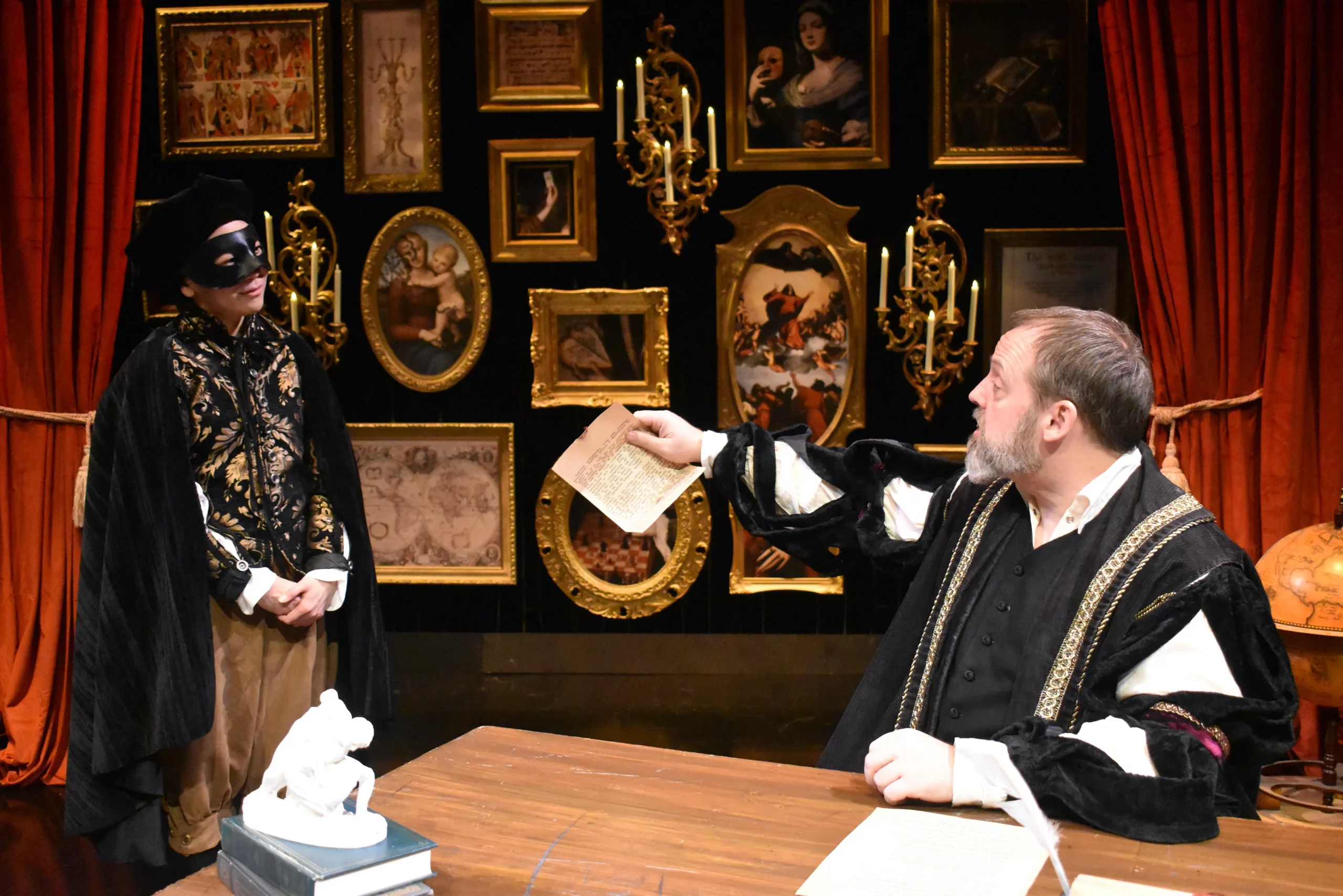
Queer Shakespeare: Plan-B Theatre’s Balthazar Reads Between the Scenes
Interviews & Features
It’s not every day that Salt Lake City gets to host a world premiere of a brand-new play, but when we do, it’s a day worth celebrating. On February 15, Plan-B Theatre Company will present the first ever showing of Balthazar, a riff on Shakespeare’s The Merchant of Venice.

Works based on the Bard’s plays aren’t a new idea, of course. If you’ve seen the movies 10 Things I Hate About You, West Side Story or even the new Anything But You, you’ve seen a Shakespeare adaptation. But Balthazar takes a very unique approach to the strategy—instead of simply retelling The Merchant of Venice, it expands upon it. “I wasn’t going to change what Shakespeare had written,” playwright Debora Threedy says. “I was going to explain it in a different way—look at it all from a totally different perspective, one that probably wouldn’t have existed in the late 1500s when he wrote the play.”
The original story of The Merchant of Venice follows Venetian merchant Antonio, who risks a pound of his own flesh to borrow money from a lender, Shylock. Balthazar’s story is much the same, except it focuses on areas that Shakespeare’s play skipped overlooked—scenes that explain why Antonio was so willing to risk his life for Bassanio (because they’re in love) and how Portia manages to disguise herself as a man named Balthazar in order to practice law and represent them in court (with the help of her also-gay cousin, Bellario).

“It’s funny, when I started writing the play I didn’t start out with the idea that Bellario was going to be a gay man,” says Threedy. She explains that when developing a character, sometimes the character will “tell” the playwright what it needs. “That’s what happened with Bellario. As I got into the play, I thought, ‘Why would a well-respected lawyer be willing to help?’ Even in Shakespeare’s play he helps, and the only explanation that kept popping up is that he was a gay man.”
Balthazar also addresses Portia’s sexuality and gender. Its interpretation shows Portia’s male alter-ego not just as a way to achieve her dream of becoming a lawyer, but also as an extension of her own identity. “[Portia’s] rebellion against gender restraints was the original inspiration for the piece,” says Threedy. “I was rereading [The Merchant of Venice] and the thought popped in my head: ‘This isn’t the first time she’s done this,’ meaning dressing as a man and impersonating a man.”
Threedy explains that she relates to Portia’s resistance to societal expectations of gender, especially in relation to practicing law. While Threedy’s passion has always been theater, she also went to law school and worked as a litigator before becoming a law professor at the University of Utah. “The experience of law school is a transformative experience. Nobody comes out of law school thinking the same way they came in,” she says. “I sometimes refer to this play as my love letter to law, but it’s kind of a conflicted love letter because I have some ambivalent feelings about the law.”
Threedy says that she struggles particularly with Utah legislation that threatens bodily autonomy and transgender rights. She sees gender inequality run rampant, especially in the legal field, where anyone who isn’t a man is discouraged from practicing. Balthazar, she says, is meant to be a message of hope—a message to queer people that they aren’t unnatural and that they can achieve their dreams.
“In that sense, Utah is the perfect place to bring in art that struggles with the question of gender and sexuality,” Threedy says. “Yeah, it’s unique, but it’s unique in a good way.”
See Balthazar from February 15–March 3 at the Rose Wagner Performing Arts Center. Tickets are available online—get them before they’re gone!
Read more coverage of local theater productions:
Play Review: Murder on the Orient Express
From Script to Set: Janice Chan on Designing for Theater
